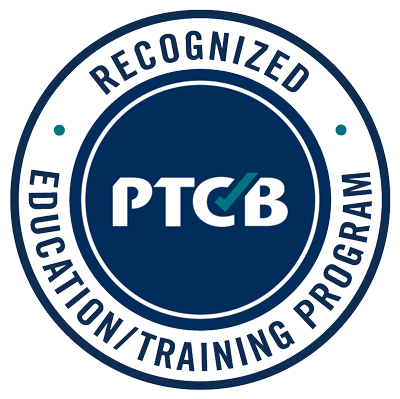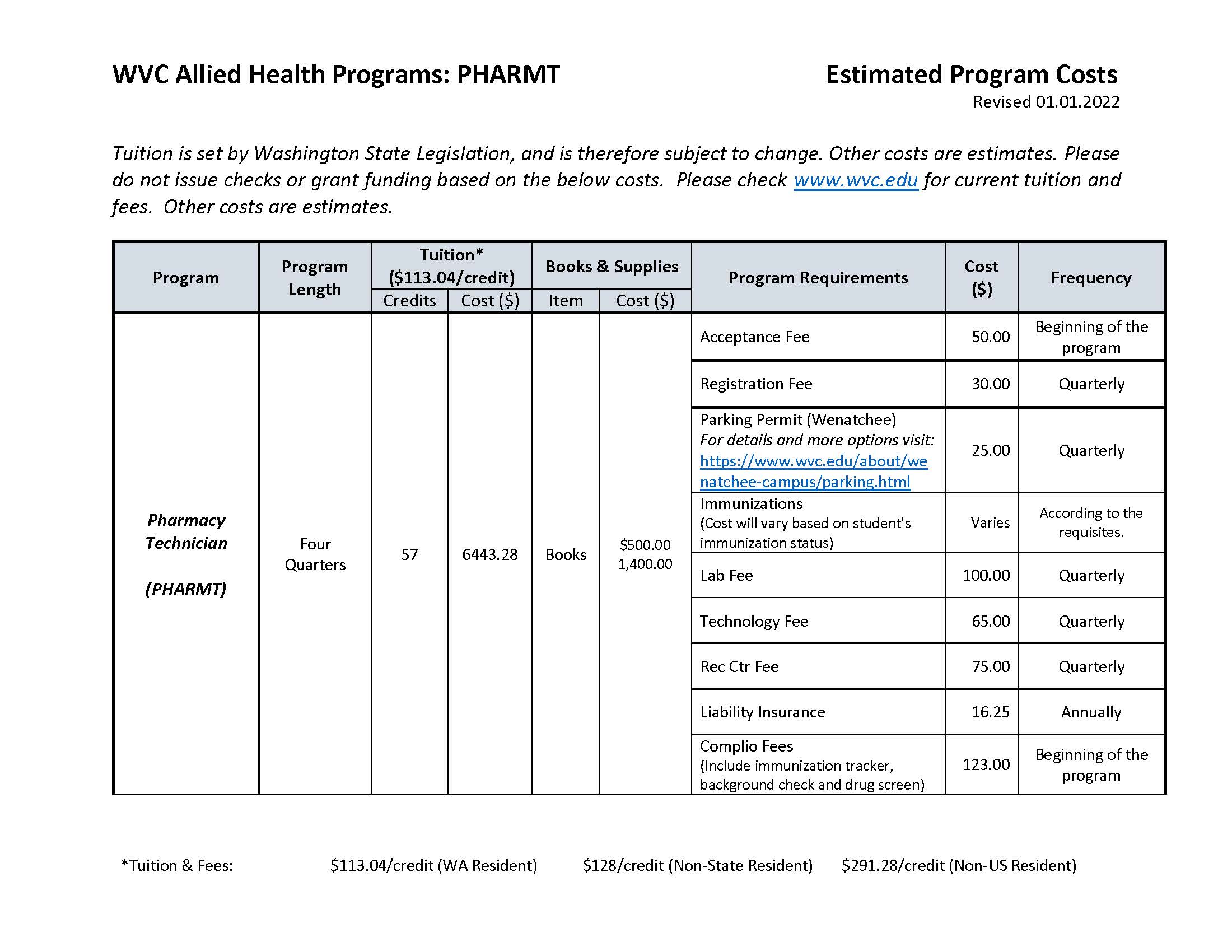Pharmacy Technician
Apply today to join the fall 2026 pharmacy technician cohort at Wenatchee Valley College! The fall 2025 program will have a delayed start date for students interested in becoming pharmacy technicians. Contact Professor Amanda Stringham for questions about the application process, program, and career opportunities.
Wenatchee Valley College Pharmacy Technician Program is a Washington State Board of Pharmacy Approved Program, a recognized program by the Pharmacy Technician Certification Board,

The Pharmacy Technician Program at Wenatchee Valley College prepares students to pass the Pharmacy Technician Certification Exam (PTCE) to become a Certified Pharmacy Technician (CPhT).
Pharmacy Technician Program Pathways
One-year Certificate
Associate in Applied Science-Transfer Degree
One-year Certificate
The Pharmacy Technician one-year certificate is a four-quarter program consisting of classroom instruction, laboratory practice and clinical pharmacy training. It aims to prepare students to sit for the Pharmacy Technician Certification Board national exam. Successful completion of the program should provide students the skills and knowledge they need to qualify for positions in community, health system and other pharmacies.
One-year Certificate program outcomes
Students should learn about drug products, calculations, dosages, dispensing techniques,
inventory management, aseptic techniques and Washington pharmacy law. Students should
study and develop different skills, work attitudes and ethics, as well as develop
proper work habits and appreciation for the job. Student training will include classroom
instruction, laboratory practice and clinical pharmacy training. This program should
prepare students to work in both community and hospital pharmacy settings.
Associate in Applied Science-Transfer Degree
The Pharmacy Technician Associate of Applied Science-Transfer Degree is a two-year program consisting of general education, technical and pharmacy education courses. Successful completion of the program should provide student the skills and knowledge they need to qualify for positions in community health systems and other pharmacies. It aims to prepare students to sit for the Pharmacy Technician Certification Board national exam. AAS-T graduates should have the preparatory background to pursue the Associate of Science-Transfer (AS-T) transfer degree to become a licensed pharmacist.
AAS-T program outcomes
Students should learn about drug products, calculations, dosages, dispensing techniques,
inventory management, aseptic techniques and Washington pharmacy law. Students should
study and develop different skills, work attitudes and ethics, as well as develop
proper work habits and appreciation for the job. Student training will include classroom
instruction, laboratory practice and clinical pharmacy training. This program should
prepare students to work in both community and hospital pharmacy settings. AAS-T graduates
should have the preparatory background to pursue the Associate of Science-Transfer
(AS-T) transfer degree to become a licensed pharmacist.
Graduate performance on national exam.
Graduating Class
Student Pass Rate on PTCE
2020
87.5%
2021
80%
2022
100%
2023
100%
2024
72%
2025
80%
To work as a pharmacy technician in Washington State students must complete a Board Recognized Pharmacy Tech Training Program with at least 8 hours of WA State Law, pass a national exam, apply for certification, and pay associated fees.
Continuing Education (CE) is required to maintain your Washington State License as well as your National Certification. Both require 20 hours of ACPE-approved continuing education every two years. Obtaining CE is outside the scope of this program, but can be found on the internet, by attending pharmacy conferences or joining pharmacy associations. Two hours must cover pharmacy law and one hour of patient safety. There is a fee for renewal.
Check out Pharmacy Technician salary and growth projections for Washington state.



